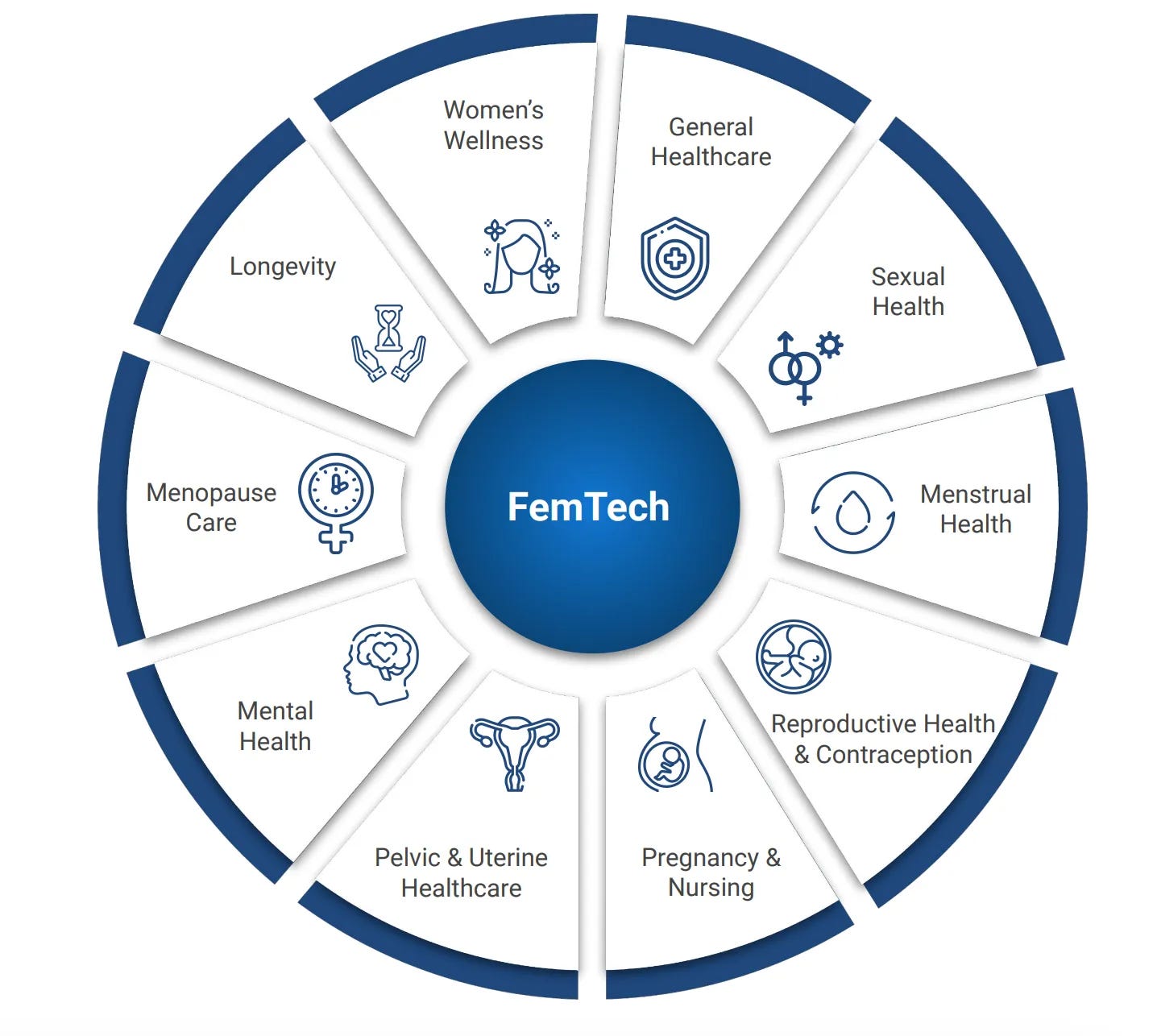FemTech’s $121 Billion Future: Will Female FemTech Founders Share in the Success?
Despite the global femtech market projected to grow to $121.33 billion by 2033, male-founded femtech companies continue to secure significantly more capital than female FemTech founders.
Femtech is a growing sector of tech, but what exactly is FemTech, and what barriers prevent female founders from successfully leading FemTech ventures?
Many of you in my network might already be familiar with this term and sector. However, for the new members of my network who may not be, here's a brief rundown:
In 2016, Ida Tin, co-founder of Clue, coined the term “FemTech” to describe tech-enabled products and services that address women’s health issues.

Since then, FemTech has grown quickly, addressing a wide range of issues from reproductive health and fertility to chronic women’s health conditions such as endometriosis and menopause.

The global femtech market size was $51.25 billion in 2023 and is expected to reach around $121.33 billion by 2033, expanding at a CAGR of 9% from 2024 to 2033.

However, despite the sector’s growth, many needs remain unmet. Since 2021, FemTech has attracted over $2 billion in VC funding, yet the gender gap in investment continues to persist.
Here are the facts:
Over 70% of FemTech companies have at least one female co-founder. This is much higher than the 20% of new companies that are founded by women.
Yet, despite this fact, male-founded femtech companies tend to raise much more capital.

Yup, you read that right—women, with their firsthand expertise living in a woman's body, are less likely to get funding than all-male teams building women’s health tech solutions. Now that is what I call bias!
The gender-driven bias driving the funding and leadership gap in FemTech was spotlighted recently when Flo announced in July 2024 that it had secured over $200 million in a Series C investment from General Atlantic, elevating its valuation to over $1 billion.

Despite its success, Flo Health Inc., founded in 2015 by brothers Dmitry Gurski and Yuri Gurski, has faced criticism for being "founded by men, led by men, and funded by men," highlighted by Anna-Sophie Hartvigsen.

It is more than clear, the current startup landscape where male-led FemTech ventures often outperform those led by women underscores a pervasive bias against female founders.
To advance FemTech, collective efforts to mitigate bias from investors, stakeholders, and advocates are critical to closing the funding gap and amplifying FemTech's global impact.
Her Hustle is the one and only online community serving up the hottest news on female student founders from across the globe!
We’re all about the new and the next, and we’re here to help you dive into it.
Join our powerhouse community and help us amplify visibility and unlock resources for female student founders!




